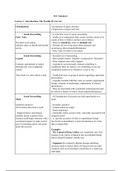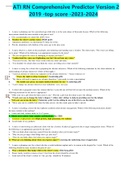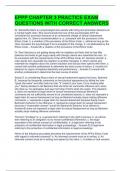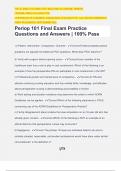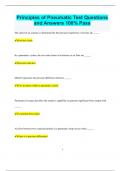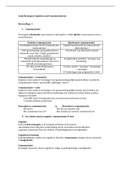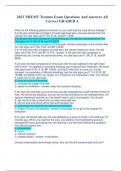Class notes
International & Global Communication Summary (Lecture Notes) - CM2001
- Course
- Institution
This document will provide you a very detailed account of what was presented in the lectures for this course. It is vital for exam preparation and will help develop your understanding of each of the terms which may not be explicit if not actually interacting with the lecture. This helped me achieve...
[Show more]
